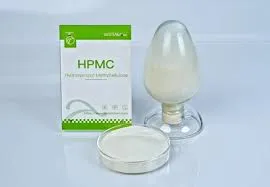
أغسطس . 15, 2024 18:36 Back to list
Current Trends and Factors Influencing Hydroxyethyl Cellulose Pricing in the Global Market
Understanding Hydroxyethylcellulose Prices Factors and Trends
Hydroxyethylcellulose (HEC) is a non-ionic, water-soluble polymer derived from cellulose. It is widely utilized in various industries, including pharmaceuticals, cosmetics, food, and construction, due to its exceptional thickening, gelling, and stabilizing properties. As the demand for HEC continues to grow, understanding its pricing dynamics is crucial for businesses and consumers alike.
Factors Influencing Hydroxyethylcellulose Prices
1. Raw Material Costs The primary source of HEC is cellulose, which is typically derived from wood pulp or cotton. Fluctuations in the availability and prices of these raw materials directly impact the cost of HEC production. Global economic factors, such as supply chain disruptions or changes in forestry policies, can lead to significant variations in raw material costs.
2. Production Processes The manufacturing of hydroxyethylcellulose involves several chemical reactions and processes, including etherification—where ethylene oxide is reacted with cellulose. The complexity of these processes and energy consumption can vary by manufacturer, influencing the final price of HEC. Companies that have invested in more efficient technologies may be able to offer competitive pricing.
3. Market Demand The demand for HEC is driven by its applications across multiple sectors. In the personal care industry, for example, HEC is a preferred thickener in lotions, shampoos, and gels. As trends shift towards natural and organic products, the demand for HEC has surged due to its natural origin. Similarly, the construction sector's need for effective water-retention agents in mortars and concrete has also contributed to rising demand. Such increased demand generally corresponds to higher prices.
hydroxyethylcellulose price

4. Geographical Factors Prices can also vary regionally based on differences in production costs and market requirements. For example, regions with a thriving cosmetics industry may see higher HEC prices due to concentrated demand. Conversely, regions with abundant cellulose resources might enjoy lower prices because of reduced transportation costs.
5. Regulatory Environment Compliance with safety and environmental regulations can impose additional costs on manufacturers, affecting pricing. For instance, if stricter regulations on chemical manufacturing are introduced, companies may face increased compliance costs that could be passed on to consumers in the form of higher prices.
6. Market Competition The competitive landscape also plays a crucial role in pricing. If several suppliers are vying for market share, it can lead to competitive pricing strategies that keep costs lower. Conversely, if few players dominate the market, they may exert considerable influence over pricing.
Current Trends and Future Outlook
As of late 2023, hydroxyethylcellulose prices have exhibited a combination of stability and fluctuation, mirroring broader economic trends. The ongoing recovery from global supply chain disruptions caused by the COVID-19 pandemic, alongside geopolitical uncertainties, has contributed to price volatility. However, the long-term outlook remains positive as industries continue to seek HEC for its versatility and performance benefits.
In conclusion, the pricing of hydroxyethylcellulose is influenced by a multitude of factors, including raw material costs, production processes, market demand, geography, regulatory considerations, and competition. Businesses looking to purchase HEC should monitor these factors and engage with multiple suppliers to obtain the best pricing. With the continued growth of various end-use industries, HEC is likely to remain in high demand, thereby influencing its price trajectory in the foreseeable future. Understanding these dynamics will be essential for stakeholders aiming to navigate the complexities of HEC pricing effectively.
-
Versatile Hpmc Uses in Different Industries
NewsJun.19,2025
-
Redispersible Powder's Role in Enhancing Durability of Construction Products
NewsJun.19,2025
-
Hydroxyethyl Cellulose Applications Driving Green Industrial Processes
NewsJun.19,2025
-
Exploring Different Redispersible Polymer Powder
NewsJun.19,2025
-
Choosing the Right Mortar Bonding Agent
NewsJun.19,2025
-
Applications and Significance of China Hpmc in Modern Industries
NewsJun.19,2025







